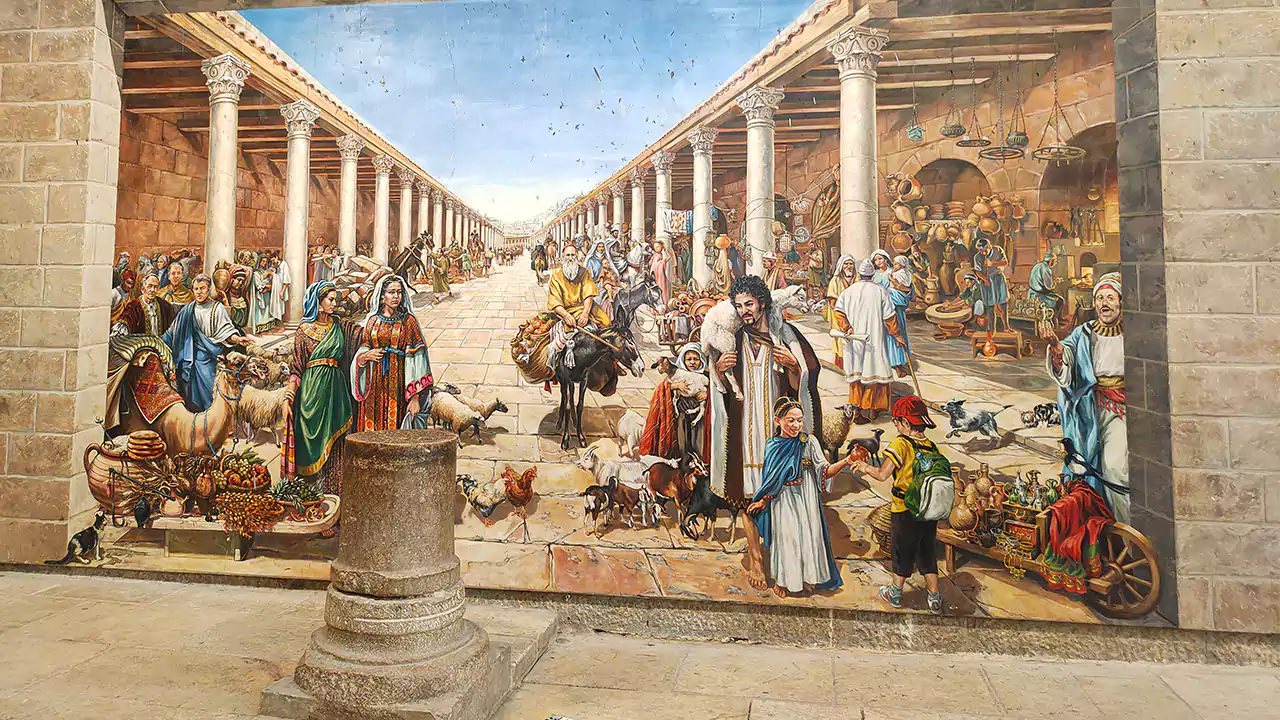Merchants of Old: Trading by the Wisdom of Scripture

Hearken, O children of commerce and keepers of the marketplace, for the ways of trade have long been chronicled, even in the sacred scrolls of old. In the days of our forefathers, as written in the Word of God, merchants journeyed from town to town, and from the rivers of Mesopotamia to the coasts of Canaan, bringing forth wares both humble and precious.
The Markets of Old
In the cities of Jerusalem, Tyre, and Gaza, merchants gathered in open-air markets, where the scents of frankincense and myrrh mingled with the sweetness of dates and figs. As it is written, “A merchant’s hand guides the scales, and he weigheth with honesty, that his gain may be just” (paraphrasing the wisdom of Proverbs). There, copper and silver, wine and oil, linen and spices were exchanged, each according to measure and worth.
Barter and Coinage
Before the minting of coins, trade oft relied upon barter. A shepherd might exchange a lamb for a basket of wheat, or a fisherman offer fish for a jar of oil. Yet, as silver and gold became minted in the lands of kings, coins began to bear the mark of authority and value, and merchants welcomed them as a medium of trust. The Apostle Paul himself, when journeying from city to city, would speak of giving and receiving, mindful of fair recompense for his labor.
Caravans and Sea Routes
Long were the journeys of the merchants, for they did not dwell in idleness. Camels laden with spices, precious stones, and fine silks traversed deserts, while ships plied the seas from Tyre to Alexandria, bearing grain and pottery. The Scriptures tell of ships of Tarshish bringing riches from afar, and of the merchants of Sheba presenting gifts to Solomon, laden with gold and incense, demonstrating the prosperity borne of faithful trade.
The Role of Honesty and Justice
Trade in ancient times was not merely about gain, but about justice and honesty. “Thou shalt not defraud thy neighbor, nor withhold the wages of the hired hand overnight” (Leviticus 19:13). Merchants were called to weigh fairly, speak truthfully, and honor their commitments, for their reputation was a treasure more precious than silver.
Lessons for Today
Though the marketplaces of ancient Israel and surrounding lands have long faded into history, their lessons endure. Trade requires integrity, diligence, and respect for the value of goods and of one’s neighbor. Just as coins bore the king’s stamp, so too must our actions bear the seal of righteousness, that we may prosper and be a blessing to others.
Thus, let us honor the ways of our forebears, walking in the wisdom of the Scriptures, mindful that commerce, rightly conducted, is a path not only to sustenance but to fellowship and divine favor.
